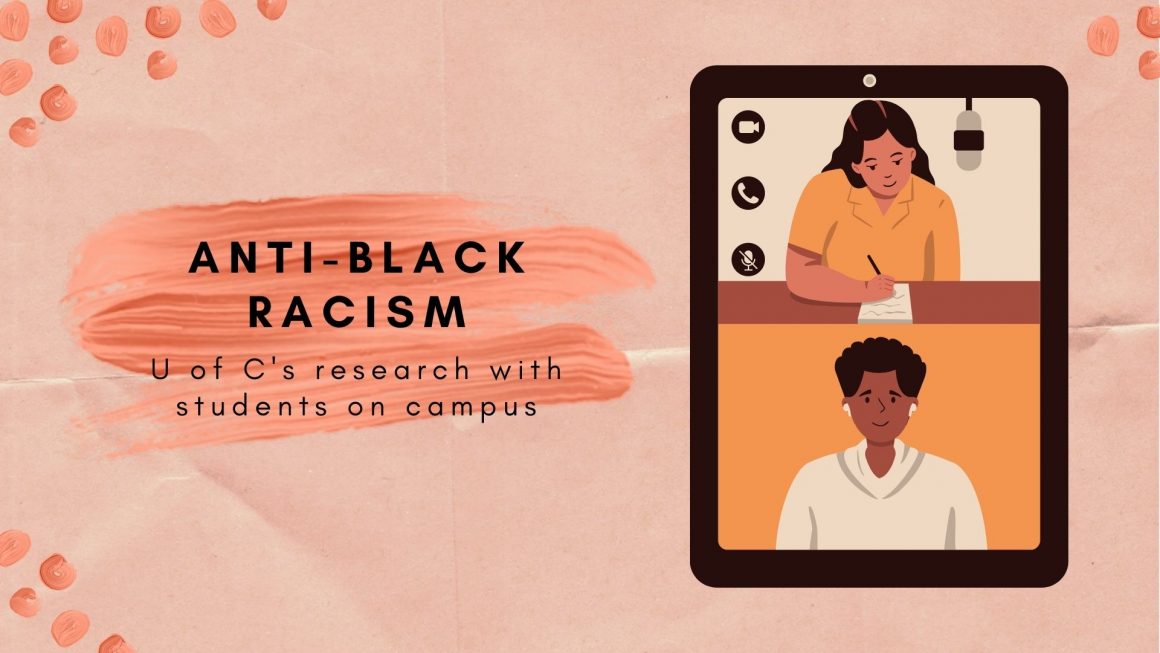
Research investigates into Anti-Black racism on the U of C campus
By Julieanne Acosta, January 13 2022—
A recent study titled “Experiences of Anti-Black Racism at the University of Calgary” aims to show Black representation on campus, while understanding Black people’s experiences.
The Gauntlet had the opportunity to interview research lead, Dr. Patrina Duhaney, to gain further insight into her work. Duhaney — aside from her research work — is also an assistant professor in the Faculty of Social Work and the co-chair of the Anti-Black Racism Task Force.
The study gathered its data from 200 survey responses and 36 one-on-one interviews from several study groups including Black students, faculty, alumni, sessional instructors and staff.
“Some people might feel a lot more comfortable participating in an anonymous survey. It allowed us to look at a larger group of people within a shorter period of time,” said Duhaney. “But we also knew that we needed to meet people individually to understand their experiences because that’s what gave us really concrete, tangible evidence of what was going on or what an individual’s experience was in terms of Anti-Black racism.”
Though some universities have directed their own research on this topic, for the U of C and most of Alberta, research in this area is lacking.
“Different universities, such as Ryerson University, McGill University and the University of Toronto, have conducted a number of different studies explicitly looking at Anti-Black racism. [Anti-Black racism] is an ongoing theme across different universities,” said Duhaney. “But in Alberta, it is really important for us to have a study such as the one I conducted with my colleagues, because we have very limited data in this region.”
The findings in this study from across the different groups was that Anti-Black racism was experienced in different ways, but experienced nonetheless. Duhaney explained how representation was clearly lacking consistently throughout all groups.
“Overall, the consistent themes across the different groups, whether its alumni, students, staff, faculty, or instructors we saw that Anti-Black racism was a reality across all groups to various degrees. [Black individuals] said that in some spaces they didn’t feel welcome and that there isn’t enough representation. Another consistent finding was that there are no mechanisms in place for when we’ve experienced Anti-Black racism and no ways to report Anti-Black racism for it to be taken seriously,” said Duhaney. “Other themes included not having support systems — whether that’s mentorships, people in counselling services, or having a dedicated space on campus where they feel welcomed — and not many opportunities of advancements. There are barriers built in the system that prevents us from working up the ladder. We saw that some Black individuals did not feel appreciated. Not everyone shares the same perspective. But a large number of people agree that Anti-Black racism is an issue that needs to be addressed.”
Duhaney’s hope for the study is to convey that people do experience this racism at the U of C . She explained how these experiences are often seen as merely anecdotal.
“I’m hoping it conveys that people do experience Anti-Black racism, it’s their lived reality and it’s something they certainly need to address.” said Duhaney. “ I believe these experiences have just been considered anecdotal as opposed to something we really need to pay attention to. The data shows that we have evidence that this is a problem that must be addressed. Let’s pay attention to it.”
With the signing of the Scarborough Charter on Anti-Black racism and Black inclusion in Canadian Higher Education this past November, Duhaney outlines how the U of C must aim to create safe spaces for Black people on campus by revamping the current curriculum to include more Black perspectives and experiences and increase representation of Black faculty and staff to ensure opportunities to support advancements.
“The University has a responsibility to create equitable spaces for everyone on campus. The Scarborough Charter is an additional push of relevance of this action,” said Duhaney. “The university really has to have all programs, services and departments involved for us to be effective in addressing Anti-Black racism. It has to be a coordinated effort across the university and not just on department to change the climate and culture of the university so that they re more welcoming for Black individuals so that they want to stay and can actually flourish while they are at the university. For the university to create a more equitable environment, its really important that resources are allotted to different programs that not only recognize Black excellence but celebrate Black contributions as well,” said Duhaney.
Amidst the publicity of the Black Lives Matter (BLM) movement, Duhaney urges us to not only speak against the Anti-Black racism in our society, but to act against it as well.
“In the aftermath of George Floyd’s murder, there has been increased attention to the struggles of Black individuals. We have seen many calls to actions and statements of commitments,” said Duhaney. “The plight for racial justice is not limited to a moment or a social movement. Black people have historically been ostracized, silenced, excluded and rendered invisible. So simply engaging in performative activism is not enough. Racial violence must be eradicated and all members of the community have a responsibility to acknowledge Anti-Black racism and take steps to mitigate the harms. We are all accountable and we must hold ourselves accountable.”
